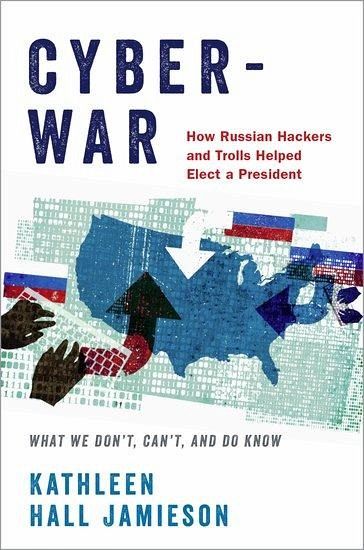
Cyberwar
Versandkostenfrei!
Versandfertig in 1-2 Wochen
23,99 €
inkl. MwSt.
Weitere Ausgaben:

PAYBACK Punkte
12 °P sammeln!
In Cyberwar, the eminent scholar Kathleen Hall Jamieson, who sifted through a vast amount of polling and voting data, is able to conclude with a reasonable degree of certainty that Russian help was crucial in elevating Trump to the Oval Office.













